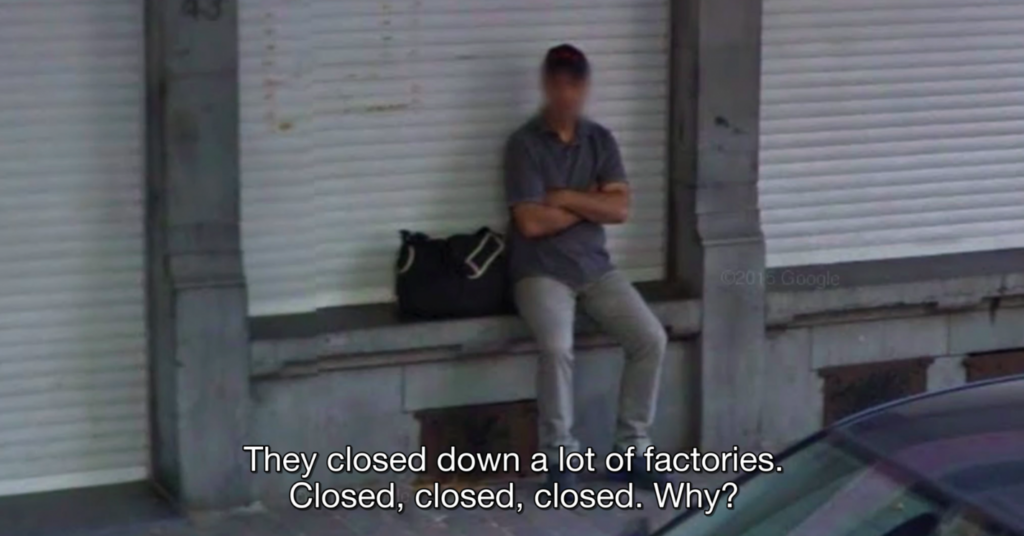The Brussels documentary maker Ben de Raes is releasing a film about the precarious situation of undocumented workers in the Handelskaai, one of the focus points for desperate refugees in the capital.
Every day, they stand on the side of the road waiting for illegal, underpaid work. Employers pick them up to ferry them to construction sites or farms where they earn small salaries and have no social security.
An estimated 150,000 undocumented migrants live in Belgium, mainly in Brussels. In recent years, these sans-papiers have made headlines with hunger strikes and protests as they and their supporters lobby the government for the official status which will allow them to work legally and find accommodation.
For Ben de Raes, the situation came closer to home when he moved to the area near the Brussels canal and witnessed the desperation of the sans-papiers first-hand.
“Two years ago, I moved to the area of the Handelskaai,” Ben de Raes told Bruzz. “After more than a year, I found it absurd that I had never spoken to those people before. They are there every day. Their situation is extremely precarious and the film idea finally gave me a reason to start a conversation."
Related News
- Butcher dies in knife fight at Anderlecht Slaughterhouse
- Brussels to build public housing on Abattoir site in Anderlecht
De Raes said that it was not possible to approach the undocumented workers with a camera, so he had to come up with a different plan. He eventually mixed the audio of voices telling the stories with Google Street View images.
“Anonymity was so important,” he said. “Eventually I decided to install myself in an empty café. We rented that building for two to three weeks and kept it open. The workers who stand out there on the street every day, we invited them in and after a few days they gradually poured in."
"There were other issues, most didn't speak fluent English or French. With that in mind, I had drawn up a list of questions in more than ten languages. Some people I spoke with for more than two hours in a language I don't know. A lot of translation work was needed afterwards."
The hard work resulted in the film ‘Waiting Working Hours', a constructed dialogue about labour and economics, in a multitude of languages. Preserving the anonymity of his subjects was of utmost importance and led De Raes to consider whether the use of blurred images would be sufficiently affective for audiences.
"It's something new, something different. Yet I also see it as a strength. The people you see may just be the people you hear, but they may not be. It's experimental, artistic. The viewer has to think, but in a certain way they get sucked in."
Living in the shadows
Despite the film lacking a personal connection through recognition, the stories De Raes collected are powerfully told and together paint a picture of struggle and fear in a foreign land where the odds seem stacked against you.
"It was very moving,” De Raes admits. “I listened to the material for a total of more than 10 hours, with just a black screen and subtitles. At times there was a lump in my throat."
"For example, there was a young boy from Somalia, who completely opened his heart. It is very satisfying to realise that afterwards. That's why I make films that record stories and emotions. Making connections with people I would normally never have a connection with."

